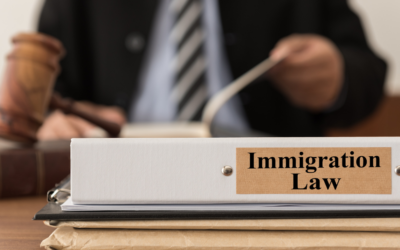Collateral often plays a pivotal role in the bail bonds process, and yet it is one of the least talked about parts of the bail bond process as a whole. The role of collateral on a loan is to serve as security for the bail bondsman to guarantee that the defendant appears in court as required. If you’re seeking a “bail bondsman near me open now,” understanding the concept of collateral is crucial.
At Frank Calabretta’s Roseville Bail House, we want to help you understand this essential aspect of the bail process by exploring four common types of collateral.
Type #1: Real Estate
Real estate is one of the most commonly used forms of collateral on any loan, including bail bonds. This type of collateral typically involves property such as a house, land, or a commercial building. When offering real estate as collateral, the value of the property is assessed to determine its worth in relation to the bail amount. Keep in mind that the property used as collateral must have sufficient equity to cover the bail amount. In the case the defendant fails to appear in court, the bail bondsman may initiate foreclosure proceedings to recover the bail amount, so collateral is meant to motivate the defendant to appear.
Type #2: Vehicles
Vehicles, including cars, trucks, motorcycles, boats, and even recreational vehicles, can also be used as collateral for a bail bond. Similar to real estate, the value of the vehicle is evaluated to make sure it meets the required criteria. It’s important to note that the vehicle must be owned outright, meaning there are no outstanding loans or liens against it.
Additionally, the vehicle’s condition and market value are considered during the assessment process. If the defendant fails to comply with the terms of the bail agreement, the bail bondsman has the authority to seize and sell the vehicle to cover the bail amount.
Type #3: Jewelry and Other Valuables
For individuals who may not have real estate or vehicles to offer as collateral, valuable assets such as jewelry, art pieces, family heirlooms or other antiques or collectibles can serve as alternatives. These items are assessed based on their appraised value, and their ownership must be verified. While jewelry and valuables provide flexibility in collateral options, it’s important to check that their value does indeed align with the bail amount. These items are typically stored securely until the resolution of the case or until the bail is exonerated.
Type #4: Cash or Bank Accounts
In some cases, cash or assets held in bank accounts can be used as collateral for a bail bond. This option offers simplicity and immediacy, as there’s no need for assessment or verification of physical assets. The defendant or their family members can provide cash or authorize access to bank accounts to cover the bail amount. However, it’s necessary to consider the liquidity of these assets and their availability for other expenses. It’s also important to note that if the defendant adheres to the terms of the bail agreement, the cash or assets will be returned upon the conclusion of the case.
Now that we’ve explored the common types of collateral used in bail bonds, let’s address some frequently asked questions regarding the bail process:
How Long Does it Take to Get Bail Money Back?
The timeline for receiving bail money back varies depending on several factors, including the jurisdiction and the specific circumstances of the case. In general, if the defendant attends all court appearances as required, the bail amount will be refunded, minus any applicable fees or charges, once the case is resolved. This process can take several weeks to several months, depending on the complexity of the case and the court’s individual procedures.
Can You Bail Someone Out on a Sunday?
Yes, bail bond services are available seven days a week, including Sundays and holidays from most reputable bail bond agencies including Frank Calabretta’s Bail House. Bail bondsmen understand that legal matters can arise at any time, and we strive to provide assistance promptly. Whether it’s a weekend, late at night, or during a holiday, you can contact a “bail bondsman near you open now” for assistance in securing the release of a loved one.
Understand Your Collateral Options and Reach Out for Assistance
Whether it’s real estate, vehicles, jewelry, or cash, understanding the available options, collateral plays a crucial role in the bail bond process, offering security for bail bondsmen and ensuring compliance with court requirements. It efficiently facilitates the bail process and helps secure the release of a defendant.
If you find yourself or a loved one in need of bail bond services, please don’t hesitate to reach out to our compassionate team at Frank Calabretta’s Roseville Bail House at (916) 782-7048 for reliable assistance and support, regardless of the time or day.






